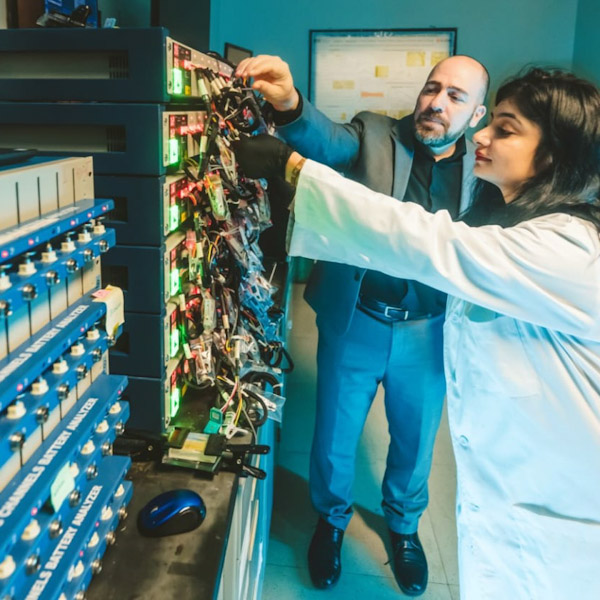
An FIU team led by Bilal El-Zahab is working on lithium-sulfur battery technology that could help extend the range of electric vehicles. Such a battery would be lightweight, less expensive than lithium ion batteries, and carry more charge. However, the lithium-sulfur chemistry undermines the battery’s longevity.
“We started working with these next generation battery chemistries eight years ago. The first charging cycle was great. By cycle 20, it was a useless lump of metal,” says Bilal El-Zahab. To counteract this, the team added nanoparticles of platinum to the sulfur side of the battery, which stabilized battery performance and boosted storage capacity closer to commercial viability. It’s “like adding a pinch of salt to food: A small amount can have an outsized impact.”
View Related Expert Profiles: